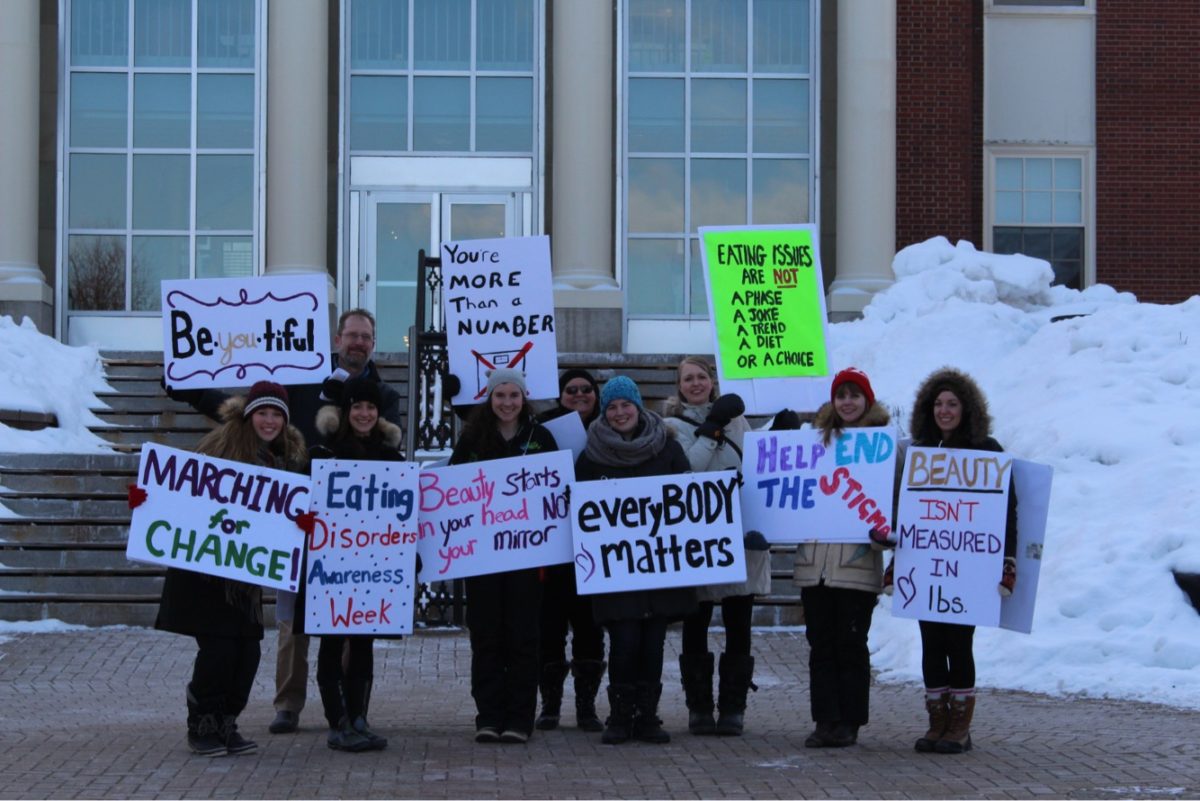Last Friday, a group of students and staff gathered at city hall at noon to start their 3-hour-long march toward heightened awareness for eating disorders.
What started downtown moved to the University of New Brunswick campus and ended up at St. Thomas University at 3 p.m, to hold a rally with several guest speakers.
“One in five women in university struggle with eating disorders,” said Olivia Allen, a group leader of the It’s Not About Food group founded at the University of New Brunswick.
New Brunswick is the only province in Canada that doesn’t have a help centre specifically focused on helping those who struggle with eating disorders.
“New Brunswick is a province that is really lacking in support for people who are struggling with eating disorders,” said Allen.
By holding this march, the students hope to raise awareness for the mental health issue within the province, but also support numerous other events happening during National Eating Disorder Awareness Week.
Even with the chilly weather the small group of nursing students and faculty march through the streets and gain support from Fredericton’s citizens.
“We got a lot of honks and a lot of waves,” said Allen.
The central message of this year’s National Eating Disorder Awareness Week is, “It’s not a choice.”
“It’s not just about eating, it’s about other issues that are going on in people’s lives … that lead them to have these issues,” said Allen.
Faculty of Nursing Professor at UNB, Kate Weaver elaborates.
“We know that eating disorders are connected with transitions,” she said.
The sudden change of habits, such as separation from family, change of exercise habits, new food and the added stress of studies, work and finances can bring about stress in university that can lead to the development of this disorder.
People with anorexia have a 10 per cent rate of mortality, the highest of any psychiatric illness. Eating disorders in general, have a number of crippling side effects. Ranging from difficulty concentrating and anxiety and depression to damage to the heart, according to Weaver.
“It affects just about every cell of your body,” she said. “Physically, socially, emotionally, you just don’t feel good often.”
The ongoing negative stigma around eating disorders is why Weaver, along with several UNB nursing students, decided to start up It’s Not About Food.
“For some students, it’s their first journey into getting any type of help at all,” said Weaver.
The nursing students also praise of the program that started in 2008.
“People have really opened up even within the first week,” said UNB nursing student Olivia Allen. “They’ve all said these weekly check-ins are really helpful.”
Even though there was only a small crowd at the congregation in the St. Thomas University courtyard Friday, the members left a lasting message.
“We must be brave enough to cast aside the shame and reach out,” said guest speaker, Kelly Humber-Kelly, mental health co-ordinator at St. Thomas University. “Suggesting that eating disorders are a choice only increases the shame, increases the secrecy and the stigma, and that leads to silence; and silence can be deadly.”

